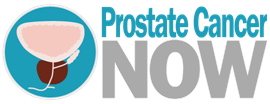Urologist, discusses prostate cancer medicaitons and how lifestyle factors and modifications can combat side effects.
What is Local Urologist
Men with prostate cancer or erectile dysfunction related to prostate cancer may work closely with a local urologist. A local urologist is a physician who treats health conditions that affect the urinary tract. The urinary tract is made up of the bladder, kidneys and ureter. A local urologist also treats reproductive system diseases in men. Some of the health conditions a local urologist treats include prostate cancer, male incontinence, Peyronie’s disease, erectile dysfunction, kidney stones, urinary tract infections and low pelvic organ prolapse. If your local family physician believes that you may benefit from seeing a local urologist, they will refer you to one. A local urologist may diagnose your condition by using urine tests, blood tests, MRI scans, cystoscopy, CT scans and prostate biopsy.
They may prescribe medications or products for male incontinence like Contino®; refer you for radiation, chemotherapy or hormone therapy for prostate cancer; or recommend/perform surgery. Contino is a male incontinence product that a man inserts (called a urethral catheter). This urinary incontinence product works by blocking the flow of urine, preventing bladder leakage. The man can simply empty the Contino urinary incontinence product at his convenience.
A local urologist may also recommend active surveillance for prostate cancer, which involves monitoring a man to see if the cancer changes or grows. If you want more information on how a local urologist can support men with prostate cancer, start by talking to your local family physician or local oncologist. The prostate is part of the male reproductive and urinary systems and it makes some of the fluid that is part of semen in men. It is located below the bladder in the body and in front of the rectum. The urethra (tube that carries urine, or pee, and semen out of the body through the penis) goes through the prostate and can get enlarged.
Radiation therapy is performed either from the outside (called external beam radiation) or with radiation “seeds” that are placed in the prostate (called brachytherapy). Your Urologist doctor may prescribe a treatment to reduce testosterone, called androgen deprivation, for a short period of time in conjunction with radiation and mens health issues. .
Smoking cessation drastically reduces your risk of developing diseases such as cancer and heart disease. Quitting smoking can be difficult, fortunately there are a variety of smoking cessation tools including prescription drugs and nicotine replacement aids such as gum or sprays.
In summary, doctors determine prostate cancer grade and stage after the diagnosis. This is used to determine the aggressiveness of the cancer and also whether the cancer has spread outside of the prostate gland. All of this information is important for the doctor to determine the next step in the treatment of prostate cancer.
Dietary fibre and antioxidant intake are two of the biggest considerations when it comes to reducing the risk of preventable cancers, such as colorectal cancer Beets and beet greens are among the most abundant sources of both these important nutrients. Fibre and calcium intake is linked with playing a role in the prevention of colorectal
cancer, cucumber contains both of these important nutrients which many people do not get enough of.
American Urological Association Founded in 1902, the AUA is a premier urologic association, providing invaluable support to the urologic community. Our mission is to promote the highest standards of urological clinical care through education, research and the formulation of health care policy
The National Center for Biotechnology Information advances science and health by providing access to biomedical and genomic information.
As the prostate grows larger, it can put pressure on the urethra and cause urinary symptoms, such as:
- Frequent or urgent need to urinate
- Difficulty starting urination
- Weak urine stream
- Incomplete emptying of the bladder
- Nocturia (frequent urination at night)
The condition is referred to by various names, including benign prostatic hypertrophy (BPH) and benign prostatic obstruction, all of which describe the same non-cancerous enlargement of the prostate gland.
While BPH is not cancer, its symptoms can significantly impact a man's quality of life, leading to the need for medical evaluation and management. Treatments for BPH vary and may include medication, minimally invasive procedures, or surgery, depending on the severity of symptoms and individual patient factors. It's essential for men experiencing urinary symptoms to consult a healthcare professional for proper evaluation and appropriate management of BPH.
Prostate cancer develops in the prostate, a gland in the male reproductive system. In early stages it often causes no symptoms and is generally slow growing. Men who are recieving prostate cancer treatments, such as Androgen Deprivation Therapy (ADT), can benefit greatly from a regular exercise program to help prevent muscle and bone weakness. One is incontinence related to prostate surgery and the other is a condition called chronic pelvic pain syndrome or as its commonly known prostatitis. Erectile dysfunction, which is the the inability to either attain or maintain an erection sufficient for sexual activity happens to men quite commonly and it of course, occurs more commonly as men get older. Overactive bladder is the sudden feeling of really needing to go to the bathroom to urinate almost immediately. These main symptoms can include urgency, which is when you have to rush to the bathroom. Treatment with medication is the frontline therapy that primary care, emergency doctors, and urologists have been prescribing since their first discovery in the 1970s. Medications called alpha-blockers are typically used first and they are used to relax the prostate. Medications like alpha blockers don't actually treat BPH, they treat the symptoms by relaxing the muscle around the urethra, so thereby reducing some of the resistance. Urinary incontinence is the involuntary loss or leaking of urine. And of course, nobody wants to leak urine.
Canada
Royal College of Physicians and Surgeons of Canada










